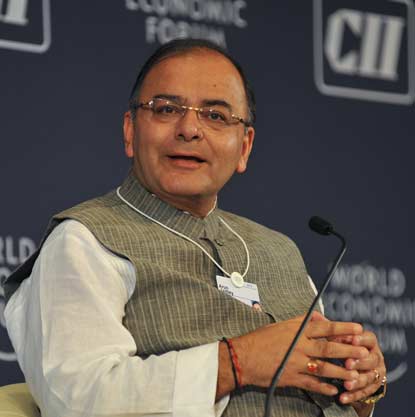Center plans to infuse Rs 70000 crore into state banks

India’s Finance Minister Arun Jaitley sought parliament’s approval on Friday to increase the spending budget for this fiscal year by $4 billion, with almost half to be used to inject extra capital into state banks struggling with bad loans. High levels of non-perfoming assets in the state-run banks have made it hard for the government of Prime Minister Narendra Modi to revive investment or accelerate growth in Asia’s third largest economy.
State lenders account for more than 70 percent of all outstanding bank loans, and they are in need of support to meet Basel III regulatory requirements. Having allocated $1.24 billion for the state banks in February budget, the finance ministry aims to inject an extra $1.9 billion, if parliament approves.
The government’s current proposal is to infuse Rs 25,000 crore each in this fiscal and the next (the PJ Nayak committee had estimated PSBs’ capital requirement at Rs 34,000 crore in FY16 and Rs 76,000 crore in FY17) and Rs 10,000 crore each in FY18 and FY19.
It, however, committed to making extra budgetary provisions in FY18 and FY19.
The total capital requirement up to FY19 (excluding the internal profit generation which will be available with the PSBs) will be around Rs 1.8 lakh crore, the finance ministry said, adding that “improved valuations coupled with value unlocking from non-core assets as well as improvements in capital productivity will enable PSBs to raise the remaining Rs 1,10,000 crore from the market”.
Minister of State for Finance Jayant Sinha told reporters that the proposed National Investment and Infrastructure Fund (NIIF) that the Union Cabinet had approved on Wednesday will make equity investments of Rs. 20,000 crore every year in commercially viable long gestation projects which will help to kick-start the economy.
The Centre will own 49 per cent of this new Mumbai-based fund, which won’t be answerable to Parliament nor audited by the CAG. It will be run on a commercialbasis by managers, who will be paid globally competitive salaries.









